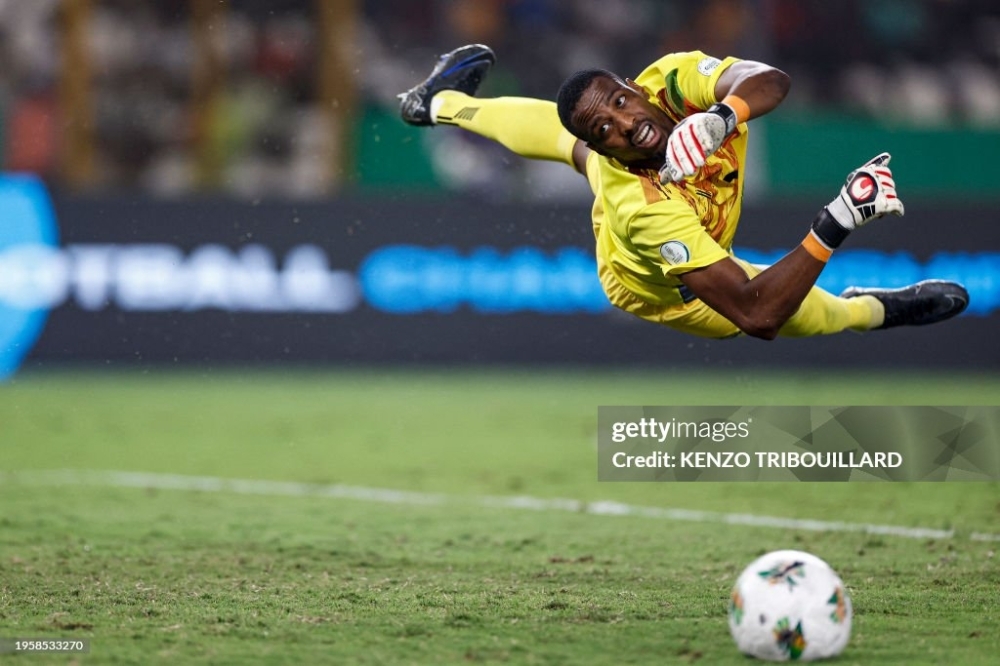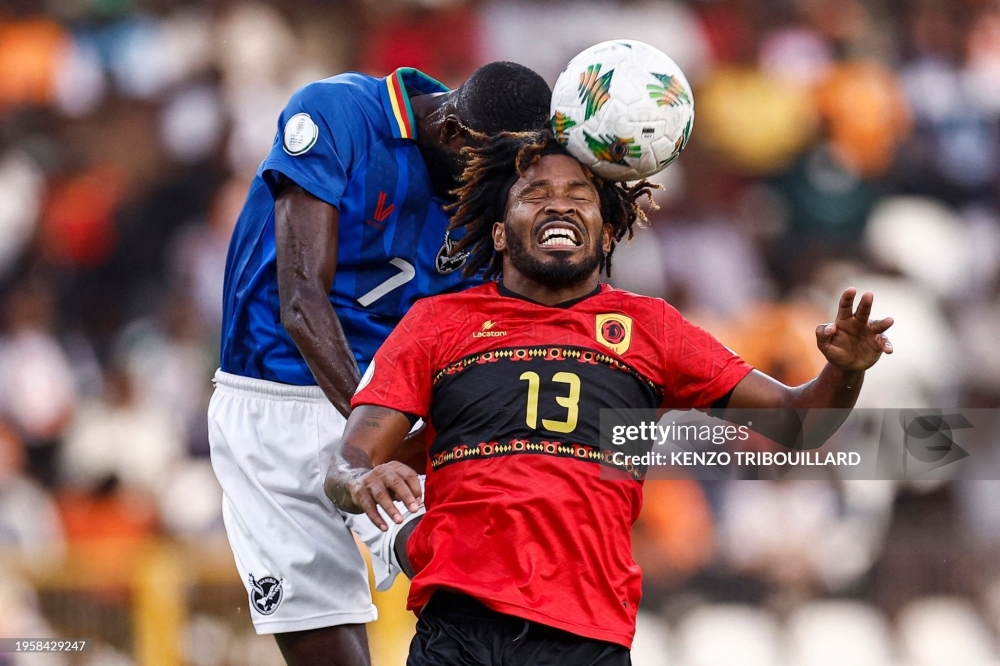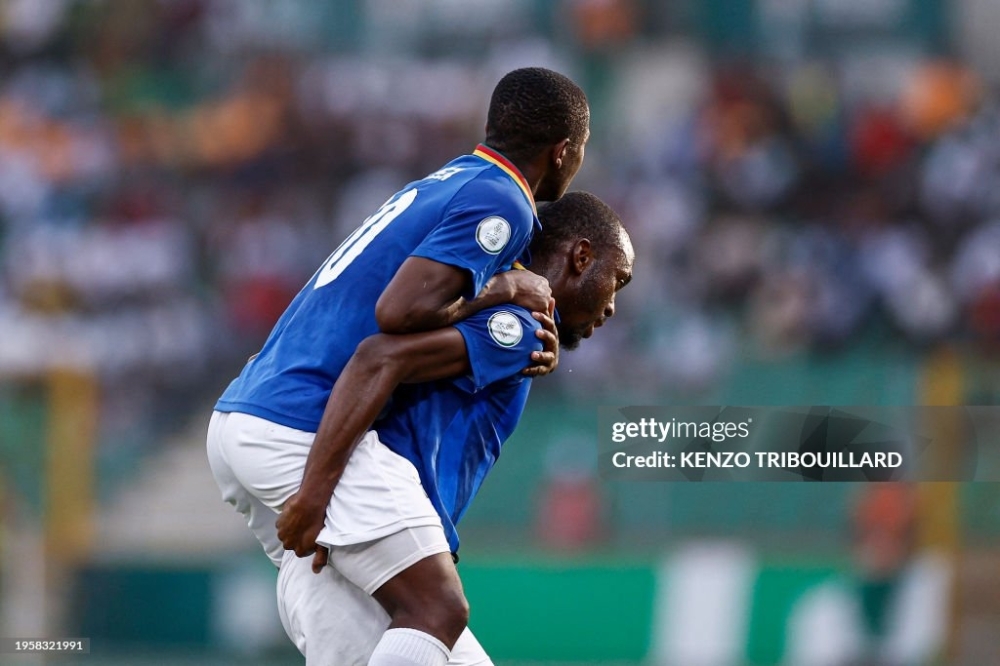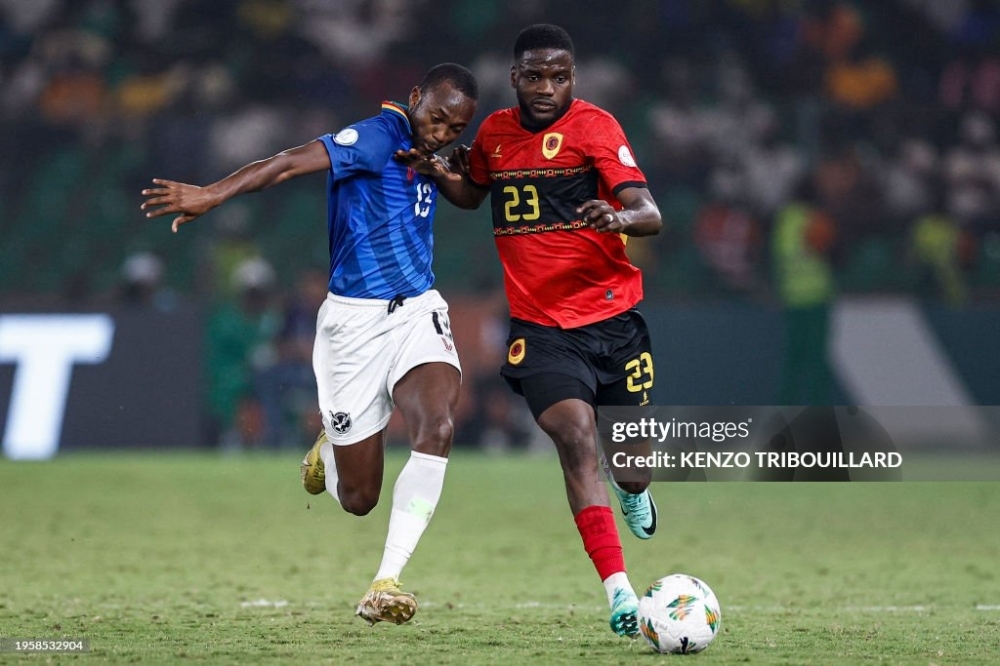Warriors’ Afcon journey: A tale of triumph and tribulation
• Knockout stage cancels out Namibia’s progression hopes
As the dust settles on the Brave Warriors' Afcon campaign, the Namibian Sun Sports Desk dissects the team's road to the Ivory Coast, the calamity that unfolded in the group and knockout stages and what Namibia needs to work on.
For the first time in the history of Namibian football, the Brave Warriors of Namibia advanced to the knockout stages of the Africa Cup of Nations (Afcon).
The road to these brutal stages was, however, not in the script for the Namibian side that faced so much adversity.
When countries were plotting strategies on how to qualify and win, Namibia faced struggles ahead of the tournament as football leaders were embroiled in infighting.
The governing body of football, Fifa, called in a normalisation committee to fix football matters in the country, which in turn ruled all Namibian stadiums unfit for international matches.
All of this meant there was no league football in the country for about four years, and players had to ply their trade outside the country to realise their dreams of playing football for a living.
When football finally got off to a stuttering start, the nation had to use South African stadiums for home matches. This again meant that players performed without support in foreign countries. It was indeed a cold and lonely time for the Warriors.
However, with determination, the team managed to qualify for Afcon.
When the group stages were announced, it was unlikely that Namibia would stand a chance at a win. But the players laced up their boots and met Tunisia in their opening match, defeating them 1-0.
Whether that was a lucky strike or not, it meant a lot to the players, and to the nation at large.
Unbelievable achievement
With a newfound taste of success on the big stage, the players marched on to face southern neigbours Bafana Bafana. Their hopes of rewriting history were not to be, as they were thrashed 4-0 by the South Africans. Percy Tau scored an early penalty and Themba Zwane scored a brace, while Thapelo Maseko's goal took the tally to four.
Wounded and embarrassed, the Warriors came out once more and faced the giants of Mali. Like the biblical story of David and Goliath, the Namibians stood shoulder to shoulder with the Malians, drawing nil all - an unbelievable achievement for a side that just came from a thrashing by South Africa.
As Namibia's as luck would have it, they qualified as one of the four best third-place teams. They scored just one goal and had a goal difference of -3, becoming only the seventh side to progress from a group despite netting just one goal.
They were then drawn against a well-oiled Angolan side in the knockout stage. With Nelson Dala scoring twice and Mabululu netting a classy third, Namibia was left dejected.
A lack of experienced finishers exposed the Brave Warriors' weakness in front of goal and cost them a chance to further continue writing history at the continental tournament.
The team's performance at Afcon sparked varied reactions from fans, critics and pundits. While some lauded their resilience, others questioned their overall preparedness and strategy.
Long-term development
Local sports journalists highlighted systemic issues in Namibian football, including a lack of infrastructure, sponsorship and a defined role for the technical director.
They further emphasised the need for long-term development and support for coaching staff and players.
According to Jesse Jackson Kauraisa, Namibia qualified against all odds as they played most of their matches away from home.
“The team was competing against nations that have it all. There has also been a lot of disruption over the years with the infighting and lack of sponsorship towards the football leagues in the country, which trickles down to the quality of play on the pitch."
He added that one thing Namibia has failed to do over the years is to define the role of its technical director.
“German football is German football because of their technical director. Spanish football is Spanish football because of their technical director, and the same goes for Italian football and the rest. These teams change coaches, but their style of play remains the same. Why? It is because of a system implemented from youth development. Do we have such systems in place to aid the coach? No,” he said.
One of our best
Another journalist Otniel Hembapu said it was one of our best performances.
"It will go down as our best tournament: We managed a win. That win against Tunisia gave us the confidence to march on. We suffered heavy defeats against two giants, South African and Angola. We have to stick with this blueprint and build on it as far as boosting our dominance in southern Africa is concerned. This is a beautiful story that we can use to further our agenda regionally," he said.
“I’m impressed - despite being knocked out. The future looks good. We have young guys like Bethuel Muzeu, Prins Tjiueza, Kennedy Amuntenya and Ivan Kamberipa. We have Lloyd Kazapua, who is the best goalkeeper in southern Africa. These guys can still stick around for the next Afcon tournament," Hembapu said.
"Yes, we have senior players like Peter Shalulile and Ryan Nyambe who struggled at the tournament, but these are things that happen. In terms of the head coach, Collin Benjamin, he's onto something good. He brought confidence in these young players. Look at how Tjiueza was playing against those big guys!
“There is something great unfolding in front of our eyes. We qualified from foreign soil. It’s remarkable," he said, adding that Benjamin needs assistance from government.
"Local football leaders need to support the coach. We need to secure proper training venues when preparing for international games. But most importantly, the players need to start playing at home. The stadiums need to be fixed. We cannot have the national team playing on foreign soil,” he said.
Turning point
Meanwhile, veteran sports journalist Carlos Kambaekwa opined that Namibia did fairly well under the circumstances. He, however, did not mince words when he said the players cannot ride on luck forever.
“Goals conceded tells us something about our defence and strike force. We had a great start, collecting three points against Tunisia, but the defeats against South Africa and Angola left a bitter taste in the mouth.
“We were very sluggish in both games. We should have put Angola to the sword from the moment they were reduced to 10 men. Instead of taking advantage of our numerical advantage, we allowed them to open the scoreboard and worsened matters when Lubeni Haukongo received marching orders for a silly foul. That was the turning point,” he said.
Time to regroup
When all is said and done, Benjamin - who has only been in charge of the team for a year and seven months and who was the youngest coach at the tournament - said he still has hope for his side.
Reflecting on the tournament, the coach acknowledged the unexpectedness of their success, but remained resolute in his belief in the team's capabilities. He further emphasised the importance of regrouping and working diligently towards future goals.
Benjamin further admitted that the team's performance and reaching the final 16 was "not in the script", but hastened to add that he was not surprised either.
“I’m the coach of the team, so I cannot be surprised. I know what they’re capable of. I train them, I know them, I bring all the strategy along with my technical team. Everything happening on that field is not a surprise - maybe to everybody else, but I’m the conductor of the orchestra that is my team.”
Namibia has to go back to the drawing board and start working again, he added.
As the players return to Namibia, and while some return to their respective clubs outside the country, the Warriors have each secured themselves an appearance fee of N$80 000 (paid per match), which was offered by the government. The benchwarmers will receive N$40 000 plus a winning bonus of N$80 000 and an extra qualifying bonus of N$50 000.
- [email protected]
The road to these brutal stages was, however, not in the script for the Namibian side that faced so much adversity.
When countries were plotting strategies on how to qualify and win, Namibia faced struggles ahead of the tournament as football leaders were embroiled in infighting.
The governing body of football, Fifa, called in a normalisation committee to fix football matters in the country, which in turn ruled all Namibian stadiums unfit for international matches.
All of this meant there was no league football in the country for about four years, and players had to ply their trade outside the country to realise their dreams of playing football for a living.
When football finally got off to a stuttering start, the nation had to use South African stadiums for home matches. This again meant that players performed without support in foreign countries. It was indeed a cold and lonely time for the Warriors.
However, with determination, the team managed to qualify for Afcon.
When the group stages were announced, it was unlikely that Namibia would stand a chance at a win. But the players laced up their boots and met Tunisia in their opening match, defeating them 1-0.
Whether that was a lucky strike or not, it meant a lot to the players, and to the nation at large.
Unbelievable achievement
With a newfound taste of success on the big stage, the players marched on to face southern neigbours Bafana Bafana. Their hopes of rewriting history were not to be, as they were thrashed 4-0 by the South Africans. Percy Tau scored an early penalty and Themba Zwane scored a brace, while Thapelo Maseko's goal took the tally to four.
Wounded and embarrassed, the Warriors came out once more and faced the giants of Mali. Like the biblical story of David and Goliath, the Namibians stood shoulder to shoulder with the Malians, drawing nil all - an unbelievable achievement for a side that just came from a thrashing by South Africa.
As Namibia's as luck would have it, they qualified as one of the four best third-place teams. They scored just one goal and had a goal difference of -3, becoming only the seventh side to progress from a group despite netting just one goal.
They were then drawn against a well-oiled Angolan side in the knockout stage. With Nelson Dala scoring twice and Mabululu netting a classy third, Namibia was left dejected.
A lack of experienced finishers exposed the Brave Warriors' weakness in front of goal and cost them a chance to further continue writing history at the continental tournament.
The team's performance at Afcon sparked varied reactions from fans, critics and pundits. While some lauded their resilience, others questioned their overall preparedness and strategy.
Long-term development
Local sports journalists highlighted systemic issues in Namibian football, including a lack of infrastructure, sponsorship and a defined role for the technical director.
They further emphasised the need for long-term development and support for coaching staff and players.
According to Jesse Jackson Kauraisa, Namibia qualified against all odds as they played most of their matches away from home.
“The team was competing against nations that have it all. There has also been a lot of disruption over the years with the infighting and lack of sponsorship towards the football leagues in the country, which trickles down to the quality of play on the pitch."
He added that one thing Namibia has failed to do over the years is to define the role of its technical director.
“German football is German football because of their technical director. Spanish football is Spanish football because of their technical director, and the same goes for Italian football and the rest. These teams change coaches, but their style of play remains the same. Why? It is because of a system implemented from youth development. Do we have such systems in place to aid the coach? No,” he said.
One of our best
Another journalist Otniel Hembapu said it was one of our best performances.
"It will go down as our best tournament: We managed a win. That win against Tunisia gave us the confidence to march on. We suffered heavy defeats against two giants, South African and Angola. We have to stick with this blueprint and build on it as far as boosting our dominance in southern Africa is concerned. This is a beautiful story that we can use to further our agenda regionally," he said.
“I’m impressed - despite being knocked out. The future looks good. We have young guys like Bethuel Muzeu, Prins Tjiueza, Kennedy Amuntenya and Ivan Kamberipa. We have Lloyd Kazapua, who is the best goalkeeper in southern Africa. These guys can still stick around for the next Afcon tournament," Hembapu said.
"Yes, we have senior players like Peter Shalulile and Ryan Nyambe who struggled at the tournament, but these are things that happen. In terms of the head coach, Collin Benjamin, he's onto something good. He brought confidence in these young players. Look at how Tjiueza was playing against those big guys!
“There is something great unfolding in front of our eyes. We qualified from foreign soil. It’s remarkable," he said, adding that Benjamin needs assistance from government.
"Local football leaders need to support the coach. We need to secure proper training venues when preparing for international games. But most importantly, the players need to start playing at home. The stadiums need to be fixed. We cannot have the national team playing on foreign soil,” he said.
Turning point
Meanwhile, veteran sports journalist Carlos Kambaekwa opined that Namibia did fairly well under the circumstances. He, however, did not mince words when he said the players cannot ride on luck forever.
“Goals conceded tells us something about our defence and strike force. We had a great start, collecting three points against Tunisia, but the defeats against South Africa and Angola left a bitter taste in the mouth.
“We were very sluggish in both games. We should have put Angola to the sword from the moment they were reduced to 10 men. Instead of taking advantage of our numerical advantage, we allowed them to open the scoreboard and worsened matters when Lubeni Haukongo received marching orders for a silly foul. That was the turning point,” he said.
Time to regroup
When all is said and done, Benjamin - who has only been in charge of the team for a year and seven months and who was the youngest coach at the tournament - said he still has hope for his side.
Reflecting on the tournament, the coach acknowledged the unexpectedness of their success, but remained resolute in his belief in the team's capabilities. He further emphasised the importance of regrouping and working diligently towards future goals.
Benjamin further admitted that the team's performance and reaching the final 16 was "not in the script", but hastened to add that he was not surprised either.
“I’m the coach of the team, so I cannot be surprised. I know what they’re capable of. I train them, I know them, I bring all the strategy along with my technical team. Everything happening on that field is not a surprise - maybe to everybody else, but I’m the conductor of the orchestra that is my team.”
Namibia has to go back to the drawing board and start working again, he added.
As the players return to Namibia, and while some return to their respective clubs outside the country, the Warriors have each secured themselves an appearance fee of N$80 000 (paid per match), which was offered by the government. The benchwarmers will receive N$40 000 plus a winning bonus of N$80 000 and an extra qualifying bonus of N$50 000.
- [email protected]







Comments
Namibian Sun
No comments have been left on this article